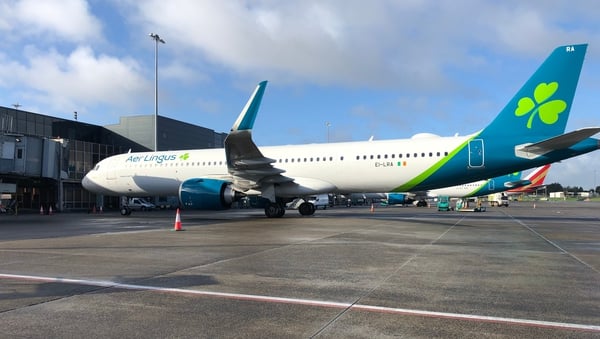The Government's deadline for securing a deal to transfer 3,500 local authority water services staff to the Irish Water utility by the end of July is "challenging" and "very ambitious", according to the Workplace Relations Commission official overseeing talks on the proposals.
The comments by WRC Director of Conciliation and Mediation, Anna Perry, come as the largest public service union Forsa warned that industrial action is "almost inevitable" if the Government attempts to coerce staff to relinquish their public service status and conditions to move to Irish Water.
Water services are currently delivered for Irish Water by local authority water services personnel operating under 31 Service Level Agreements due to continue till 2025.
However, a Government policy paper published by Minister for Housing, Local Government and Heritage Darragh O'Brien in February, aims to streamline services by transferring the local authority workers to the single water utility by next year - a move which unions have so far resisted.
Employees fear that they would lose their public service status, terms and conditions and security of employment - and are seeking guarantees that pay and conditions would be protected in any transfer, with no compulsory redundancies.
Unions are also demanding a referendum to underpin public ownership and control of Irish Water - as local authority staff fear the amalgamation within a single utility will be a "stepping stone" to water privatisation unless a referendum takes place first.
In addition, they have also raised concerns about the future viability of local authorities if water services were removed from their control.
Addressing Forsa's Local Government online conference, Ms Perry said she had been made aware that the government proposals are a source of "huge anxiety" for workers who had expected to develop their careers in local government.
She also acknowledged union objectives that there should be no compulsory transfer of staff, and that the protection of existing terms and conditions should be maintained.
She told delegates that some of the issues of concern to unions were outside the scope of the WRC talks process, including constitutional and governance issues related to Irish Water and the future sustainability of local government if water services were removed.
However, she accepted that resolving them were key to progressing towards an agreed framework for the future delivery of water services.
Ms Perry, who chairs the Irish Water Consultative Group, acknowledged that the upcoming discussions would not be without some challenges.
In his speech to conference, Forsa National Secretary Peter Nolan said a huge gap remains between Government plans and the protections sought by workers.
"The repeated failure to respond to union concerns, or even to show some respect to the people who use and provide our water infrastructure, makes me think that industrial action is almost inevitable. The only question is when," he said.
"If workers are forced to transfer to Irish Water against their will, their anger and alienation will create a failed entity, a mortally-wounded service, and a public policy debacle to dwarf previous protests over water charges," he said.
Delegates unanimously backed a motion expressing "grave concern" about the Government proposals, and endorsing the union strategy of engaging with the WRC on the basis of a four-strand approach.
Those strands include the constitutional protection of water services, proper governance structures for any single water services entity, renewed support for local government services and no compulsory conscription of staff to the Irish Water utility.
A spokesperson for the Department of Housing, Local Government and Heritage said the WRC expects to schedule talks on the issuers related to a framework for the future delivery of water services in the coming weeks.






